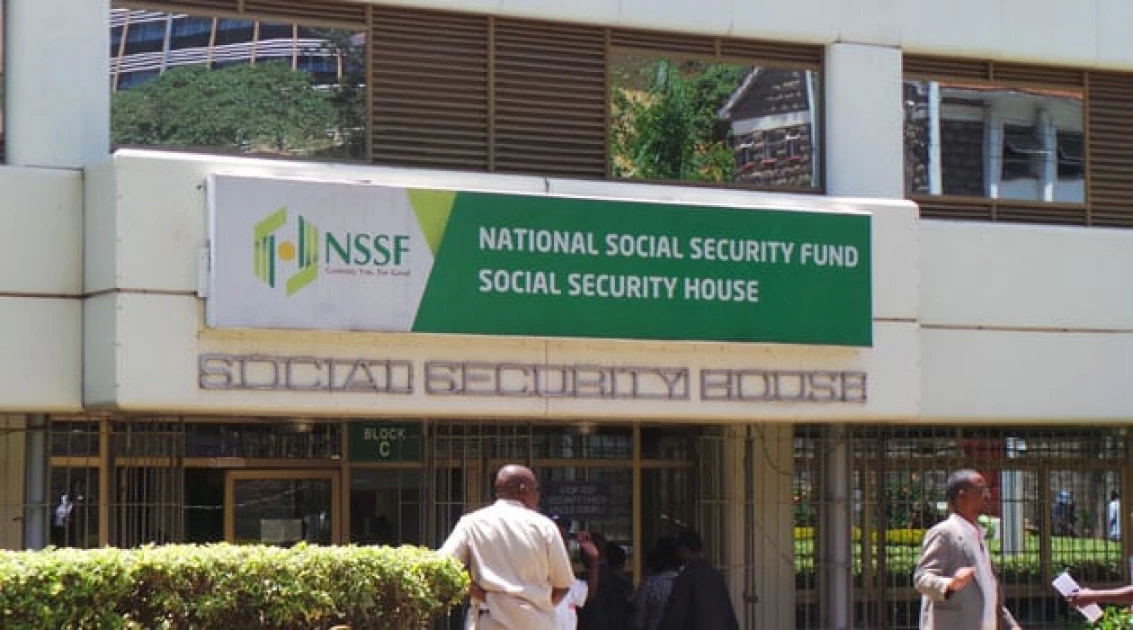Did you know you don't need to be 60 years old to get your NSSF benefits?

A file photo of NSSF offices.

Audio By Vocalize
You do not have to be over 60 years of age to be eligible
for your National Social Security Fund (NSSF) benefits, the fund has
clarified.
According to the government agency, there are instances where
one can receive their NSSF payments before retirement age.
These are the Age or Retirement Benefit, Emigration Benefit,
Withdrawal Benefit, Survivors Benefit, and the Invalidity Benefit.
Dr
Christopher Khisa, the fund’s Communications Manager on Monday said for the
retirement option, NSSF members
who reach the age of 55 years, or when they ultimately retire from regular
employment, are eligible for payment.
“It’s
not a must for you to be over 60 to get your NSSF payment. If you were employed
and unfortunately you get injured and cannot work again, you will be paid your
Invalidity Benefit,” Khisa told Radio Citizen.
The Emigration
benefit on the other hand applies to NSSF members
emigrating from Kenya to a country which is not a member of the East African
Community, without the intention of returning to reside in Kenya.
“If
you have been working and relocate to another country before the age of 60, you
are paid the Emigration Benefit,” he said.
At
the same time, relatives or dependants of a deceased NSSF member are entitled
to the Survivors Benefit.
NSSF
says on its website that the dependant relatives qualify for this benefit in
the following order:
- The husband/wife of the deceased; all children irrespective of age or gender, in the case where the husband or wife of the deceased is also deceased, or if the deceased was a single parent.
- The parents of the deceased, if the deceased member was not married and had no children.
- Sisters and brothers of the deceased, if the deceased was single, had no children, and both parents are deceased.
- The guardian to the children of the deceased member, where both the parents are deceased and all the deceased members’ children are minors.
- An applicant who has letters of administration, in case all dependants are exhausted.
Similarly,
NSSF members who have been laid off or decide to leave formal work after the
age of 50 are entitled to the Withdrawal Benefit.
“There
must be documentation to prove that you are in the specific situation. For
instance, if it is an accident you have been involved in and cannot work
anymore, there needs to be medical evidence to support the claim,” Khisa said.
However, the communications manager noted that NSSF benefits are subject to thorough verification of the claimants’ applications.
“We
first verify to ascertain that the claims we get are valid and that the
complainants are the correct beneficiaries,” said Khisa, adding that most
claims take time to be fully processed due to authentication.
“We
have had cases of siblings who want to bar each other from getting benefits and
that is why some of these claims take some time to be fully processed.”
To apply for an NSSF benefit, one needs to visit any of the fund’s offices countrywide with the respective supporting documents NSSF lists on the Benefits page of its website.
Last month, Kenyans began paying new NSSF monthly rates after a consensus between the Federation of Kenya Employers
(FKE) and the State agency’s board of trustees.
Under the NSSF Act 2013, an employee is
expected to contribute 6 per cent of their salaries to the NSSF and another six
per cent to be matched by their employer.
An employee in Tier I – earning Ksh.6,000 per
month – should be deducted Ksh.360 per month, and their employer to pay a
similar amount making it a total of Ksh.720.
An employee in tier II who is earning
Ksh.18,000 and above per month becomes the upper limit of contributions, paying
Ksh.1,080, their employer should match up a similar amount to give a total of
Ksh.2,160.
This is up from a flat rate of Ksh.200 that
all the employees have been paying.


Leave a Comment